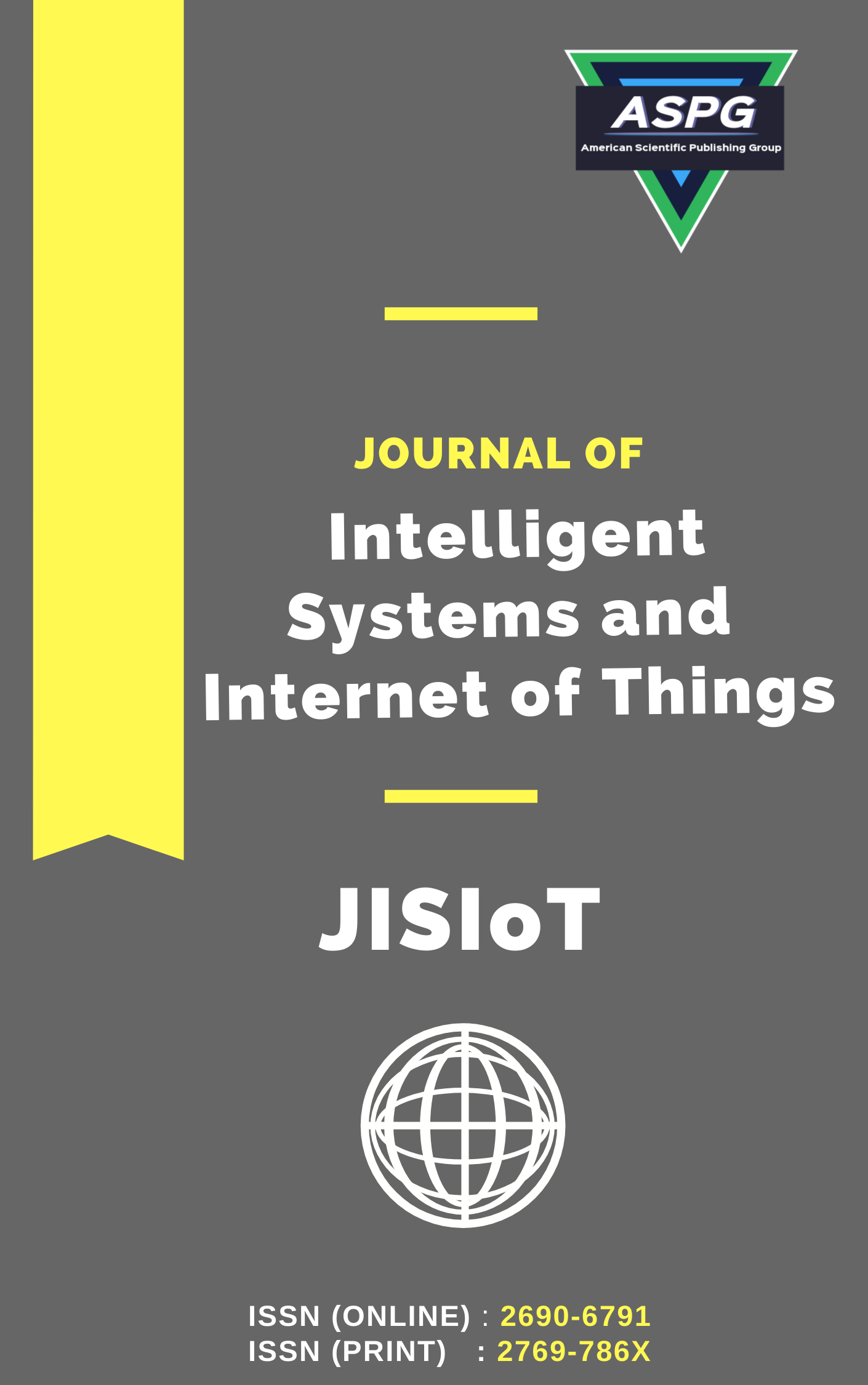

Volume 13 , Issue 2 , PP: 202-211, 2024 | Cite this article as | XML | Html | PDF | Full Length Article
Kiran Sree Pokkuluri 1 , Ajay Kumar 2 , Krishan Kant Singh Gautam 3 , Pratibha Deshmukh 4 , Pavithra G 5 , Laith Abualigah 6
Doi: https://doi.org/10.54216/JISIoT.130216
This research compares federated and centralized learning paradigms to discover the best machine learning privacy-model accuracy balance. Federated learning allows model training across devices or clients without data centralization. It's innovative distributed machine learning. Keeping data on individual devices reduces the hazards of centralized data storage, improving user privacy and security. However, centralized learning concentrates data on a server, which raises privacy and security problems. It evaluates two learning approaches using simulated data in a simple regression problem framework. Federated learning seems to be as accurate as centralized learning while protecting privacy. The paper also shows how federated learning works in popular machine learning frameworks like TensorFlow Federated. This research shows that federated learning protects privacy while producing accurate machine learning models. It challenges the idea that machine learning must constantly choose between privacy and accuracy. Empirical facts and theoretical ideas from this study advance machine learning methodology discussions. In the digital era, it promotes privacy-conscious, dispersed learning frameworks.
Federated Learning , IoT Security , Centralised Learning
[1] Stacey Truex; Nathalie Baracaldo; Ali Anwar; Thomas Steinke; Heiko Ludwig; Rui Zhang; Yi Zhou; "A Hybrid Approach To PrivacyPreserving Federated Learning", ARXIV-CS.LG, 2018.
[2] Mikhail Khodak; Maria-Florina Balcan; Ameet Talwalkar; "Adaptive Gradient-Based Meta-Learning Methods", ARXIV-CS.LG, 2019.
[3] Latif U. Khan; Madyan Alsenwi; Ibrar Yaqoob; Muhammad Imran; Zhu Han; Choong Seon Hong; "Resource Optimized Federated Learning-Enabled Cognitive Internet of Things for Smart Industries", IEEE ACCESS, 2020.
[4] Stefano Savazzi; Monica Nicoli; Vittorio Rampa; "Federated Learning With Cooperating Devices: A Consensus Approach for Massive IoT Networks", IEEE INTERNET OF THINGS JOURNAL, 2020
[5] Charles Wheelus; Xingquan Zhu; "IoT Network Security: Threats, Risks, and A Data-Driven Defense Framework", 2020.
[6] Basheer Qolomany; Kashif Ahmad; Ala Al-Fuqaha; Junaid Qadir; "Particle Swarm Optimized Federated Learning For Industrial IoT And Smart City Services", ARXIV-CS.LG, 2020
[7] Devrim Unal; Mohammad Hammoudeh; Muhammad Asif Khan; Abdelrahman Abuarqoub; Gregory Epiphaniou; Ridha Hamila; "Integration of Federated Machine Learning and Blockchain for The Provision of Secure Big Data Analytics for Internet of Things", COMPUTERS SECURITY, 2021
[8] Vijay Anavangot; Animesh Kumar; "Algorithms for Overpredictive Signal Analytics in Federated Learning", 2020 28TH EUROPEAN SIGNAL PROCESSING CONFERENCE (EUSIPCO), 2021.
[9] Amir Masoud Rahmani; Elham Azhir; Saqib Ali; Mokhtar Mohammadi; Omed Hassan Ahmed; Marwan Yassin Ghafour; Sarkar Hasan Ahmed; Mehdi Hosseinzadeh; "Artificial Intelligence Approaches and Mechanisms for Big Data Analytics: A Systematic Study", PEERJ. COMPUTER SCIENCE, 2021.
[10] Othmane MARFOQ; Giovanni Neglia; Aurlien Bellet; Laetitia Kameni; Richard Vidal; "Federated Multi-Task Learning Under A Mixture of Distributions",
[11] Ni, Wanli Liu, Yuanwei Yang, Zhaohui Tian, Hui Shen, Xuemin. (2021). Federated Learning in Multi-RIS Aided Systems. IEEE Internet of Things Journal. PP. 1-1. 10.1109/JIOT.2021.3130444
[12] Haobo Zhang; Ziang Yang; Yonglin Tian; Hongliang Zhang; Boya Di; Lingyang Song; "Reconfigurable Holographic Surface Aided Collaborative Wireless SLAM Using Federated Learning for Autonomous Driving", IEEE
[13] Jameel Ahmad; Muhammad Umer Zia; I. Naqvi; J. N. Chattha; Faran Awais Butt; Tao Huang; Wei Xiang; "Machine Learning and Blockchain Technologies for Cybersecurity in Connected Vehicles", WILEY INTERDISCIPLINARY REVIEWS: DATA MINING AND KNOWLEDGE ..., 2023.
[14] Johnson M, Jones M, Shervey M, Dudley J, Zimmerman N Building a Secure Biomedical Data Sharing Decentralized App (DApp): Tutorial J Med Internet Res 2019;21(10):e13601 URL: https://www.jmir.org/2019/10/e13601 DOI: 10.2196/13601
[15] Cynthia, Accuracy Degrading: Toward Participation-Fair Federated Learning,” IEEE Internet of Things Journal, Jun. 2023. [Online]. Available: Dwork. Differential privacy. (2006); 4052:1-12. doi: 10.1007/11787006_1
[16] Yann, LeCun., Léon, Bottou., Léon, Bottou., Yoshua, Bengio., Yoshua, Bengio., Yoshua, Bengio., Patrick, Haffner., Patrick, Haffner. (2001). Gradient-based learning applied to document recognition. 306-351.
[17] Privacy vs. Efficiency: Achieving Both through Adaptive Hierarchical Federated Learning. IEEE Transactions on Parallel and Distributed Systems, 34(4):1331-1342. DOI 10.1109/tpds.2023.3244198